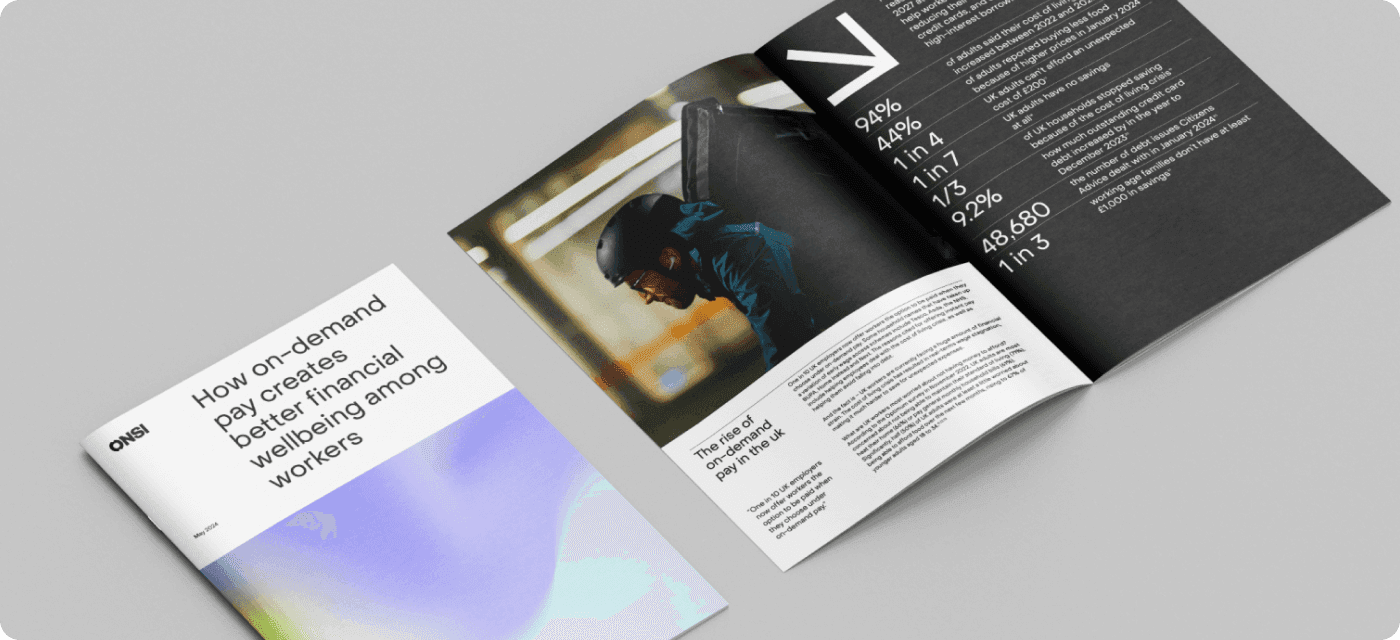The system of getting paid a salary on a regular, set date is so ingrained in working culture that, for a long time, it seemed there was no other way. You wait to get paid every month, week or couple of weeks. And in the meantime, if the money runs out, you just make do. Of course, ‘making do’, often means relying on credit cards and loans to bridge the gap between paydays. Or, worse, tapping into the toxic world of payday loans to cover larger, one-off expenses.
That is, until the concept of on-demand pay was introduced. Also known as early wage access (EWA), and salary on-demand, this new scheme has disrupted a system that doesn’t work for many. Giving workers access to a portion of their money in advance of payday, gives them greater financial liquidity and control.
How on-demand pay works
For those who’ve never heard of on-demand pay, the logistics are pretty simple. A worker can choose to access some of their earnings as soon as they’ve earned them, rather than waiting until their next payday. Businesses can choose to cap the amount their employees can draw-down each month – for example, at a percentage of their earnings. They can also limit the number of draw-downs a worker can make.
There’s usually a very small fee associated with accessing wages ahead of time (around one or two pounds). Businesses can choose to pay this if they want, so their employees can access their money for free. Having said that, research shows that workers are very happy to pay a small fee to access some of their money in advance of payday. In reality, the cost is almost negligible compared to the fees and interest rates associated with typical borrowing.
On-demand pay is better for workers – and businesses
On-demand pay has been made possible by developments in fintech in recent years. The newness of the concept naturally brings with it certain questions – like, is it ethical to allow workers access to their money in advance of payday? What if they just spend all their money and end up worse off? While valid, these concerns are based on misconceptions about how people behave with money.
There’s plenty of data to show that, in reality, giving workers access to on-demand pay helps to improve their financial and general wellbeing. Increased liquidity means less reliance on high-interest loans. It gives workers the freedom to spread their money in a way that works better for them and helps them to manage unexpected or larger one-off expenses without falling into debt. Research shows that less debt and financial stress equate to greater wellbeing, as you’ll discover in this paper.
It’s no wonder then, that the concept of early wage access is catching on. The US takes the lead, followed by the UK and Europe. It might be surprising to learn that, in the UK, one in 10 employers currently offer some variation of the on-demand pay – including the NHS, Tesco, Asda and BUPA.
A data-backed and sought-after solution
In this paper, you’ll discover a plethora of interesting statistics, facts, and insights about this new way of approaching pay. These demonstrate clearly that not only does early wage access have the potential to significantly improve workers’ financial wellbeing – but to benefit the employers they work for, too. As you’ll learn on page 7, workers are now actively seeking businesses that offer on-demand pay, and are more likely to do a better job when they have it. Looking at the benefits they can expect to feel from greater financial freedom, it’s not hard to understand why.
To understand how on-demand pay is perceived by workers, how it benefits businesses, and why it’s well on the way to being the future of pay, download our paper for free:


